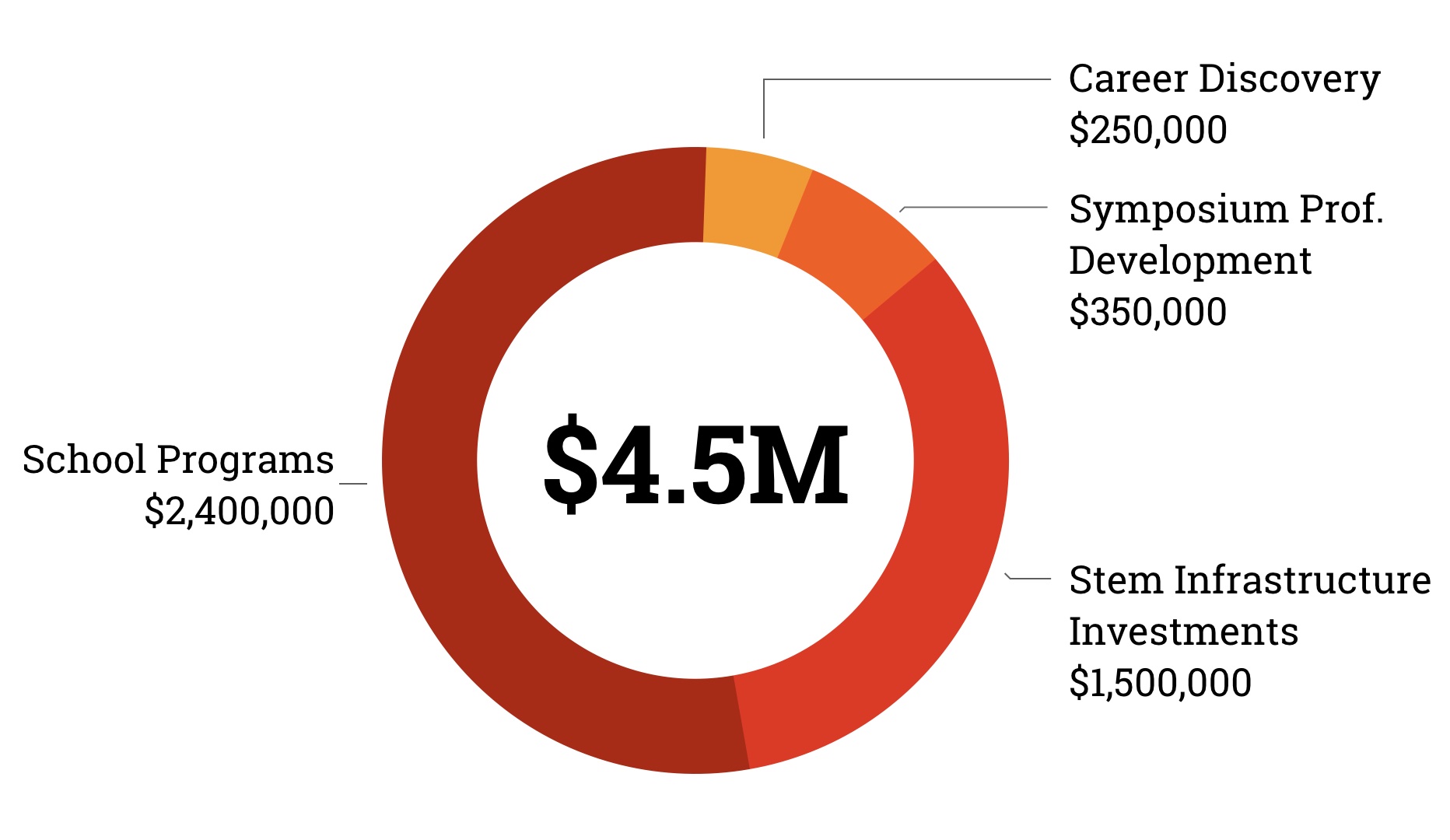The Odyssey School Program targeted schools in urban and more remote areas of BC with high percentage of underrepresented students - including rural, First Nations and students with socio-economic challenges – that had less access to enrichment opportunities and resources. Educators were empowered to make transformative changes in the way science was taught inside and outside the classroom. Odyssey educators were responsible and accountable for how resources were used and resources were applied at the teacher/student level with greatest efficiency. Educators found that the planning required for a multi-year Odyssey program helped create a specialized focus on STEM skill development and longer-term strategic goals - beyond shorter-term objectives and tactics within each school year.
New lab equipment and resources created a more tactile and participatory learning environment. Innovative teaching practices utilized new technology to transform how students learn - through flipped classroom concepts, Skype sessions with virtual guest scientists and experts; and access to visual scientific demonstrations and information not available in a text books. Personalized learning helped students develop critical thinking, problem-solving skills and personal interests while developing a passion for science.
A strong focus on sustainability ensured Odyssey resources permeated across entire science departments, schools and school districts. Involvement with local industry and community enriched the relevance of scientific concepts and provided essential career role models and unique development opportunities for students. Professional development for educators during the annual Odyssey Symposium stimulated new ideas, collaboration and resource sharing amongst educators, scientists and engineers.

